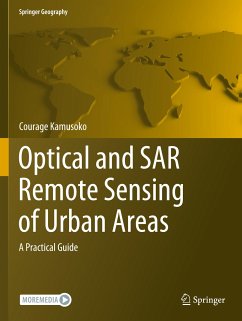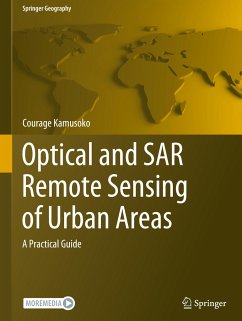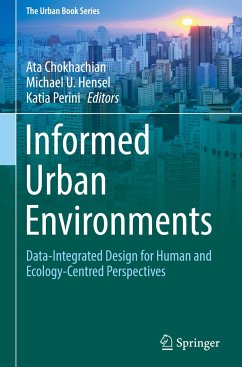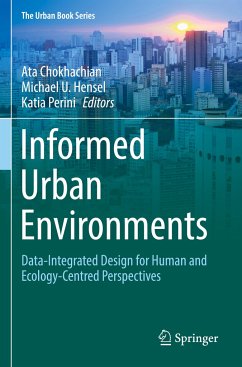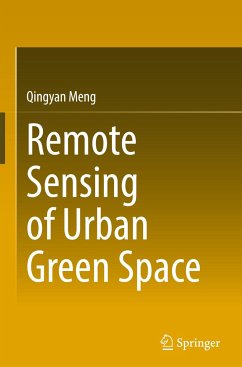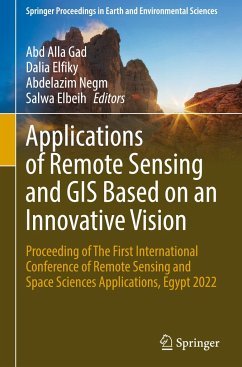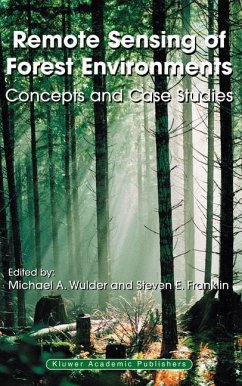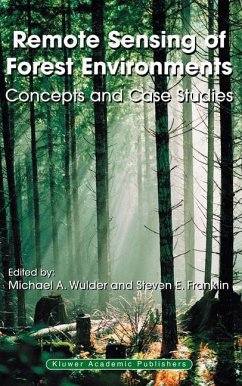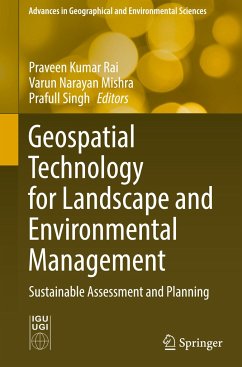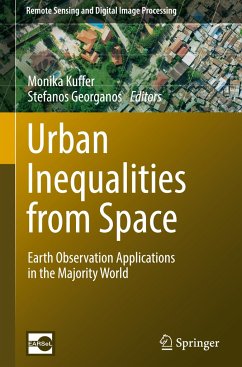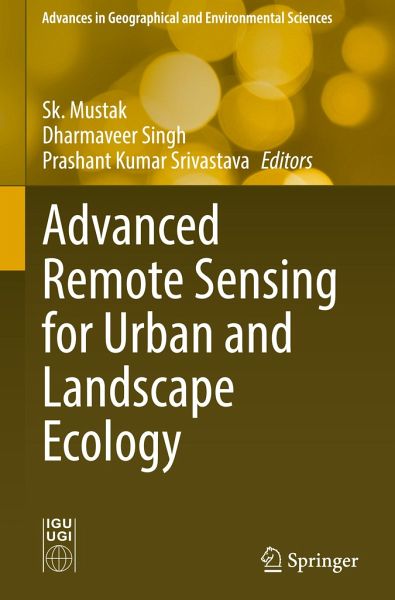
Advanced Remote Sensing for Urban and Landscape Ecology

PAYBACK Punkte
83 °P sammeln!
This book introduces the use of various remote sensing data such as microwave, hyperspectral and very high-resolution (VHR) satellite imagery; mapping techniques including pixel and object-based machine learning; and geostatistical modelling techniques including cellular automation, entropy and land fragmentation. Remote sensing plays a vital role in solving urban and environmental challenges at the landscape level. Globally, more than half of the urban population is facing severe environmental and social challenges, especially those relating to climate change, agricultural land encroachment, ...
This book introduces the use of various remote sensing data such as microwave, hyperspectral and very high-resolution (VHR) satellite imagery; mapping techniques including pixel and object-based machine learning; and geostatistical modelling techniques including cellular automation, entropy and land fragmentation. Remote sensing plays a vital role in solving urban and environmental challenges at the landscape level. Globally, more than half of the urban population is facing severe environmental and social challenges, especially those relating to climate change, agricultural land encroachment, green infrastructure and environmental degradation, mobility due to rapid rural-urban transformation and anthropogenic interventions. Mapping and quantification of such threats at the landscape level are challenging for experts using traditional techniques; however, remote sensing technology provides diverse spatial data at a varying scale, volume and accessibility for mapping and modelling, and it also analyses challenges at urban and landscape levels.
Together, they address challenges at urban and landscape levels to support the Sustainable Development Goals (SDGs).
Together, they address challenges at urban and landscape levels to support the Sustainable Development Goals (SDGs).



